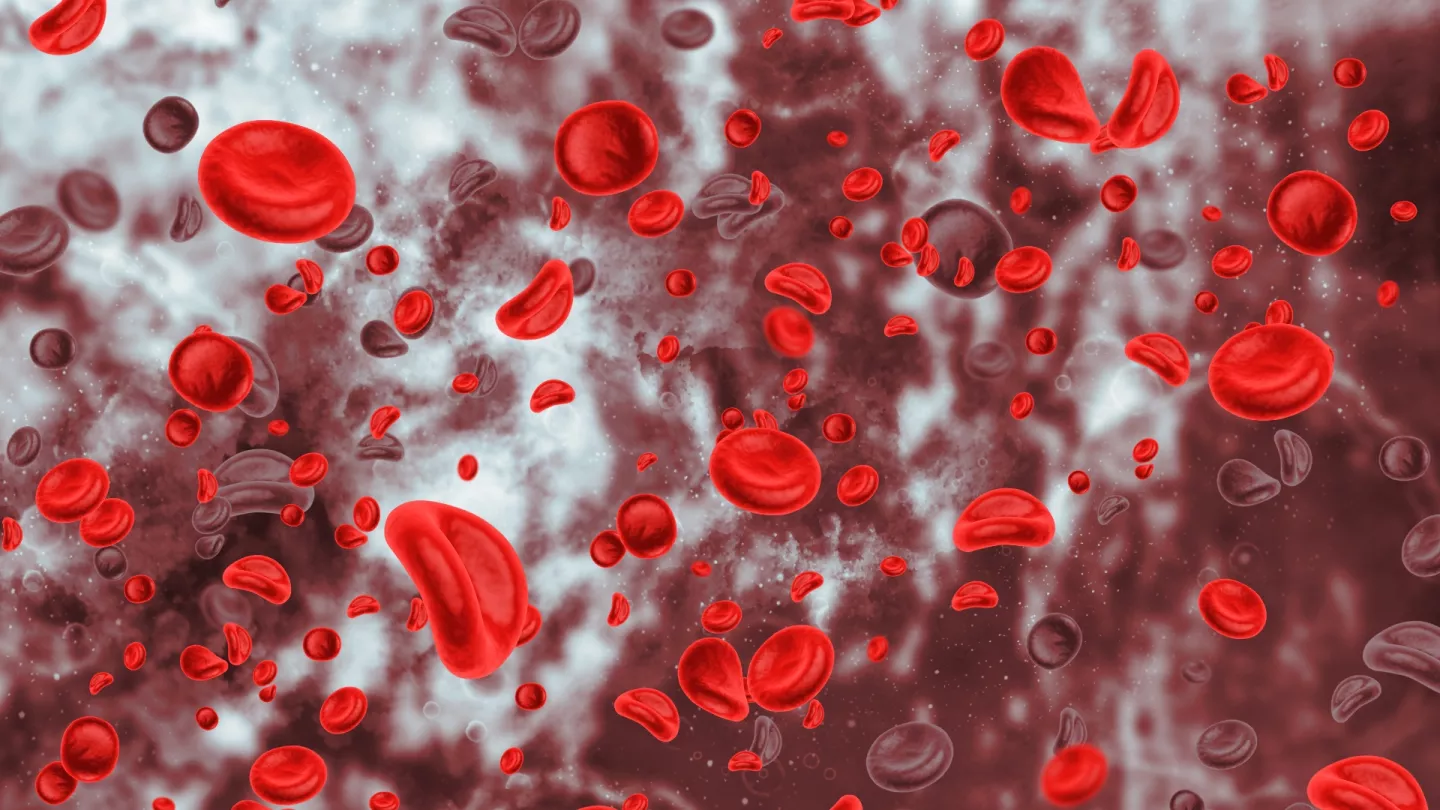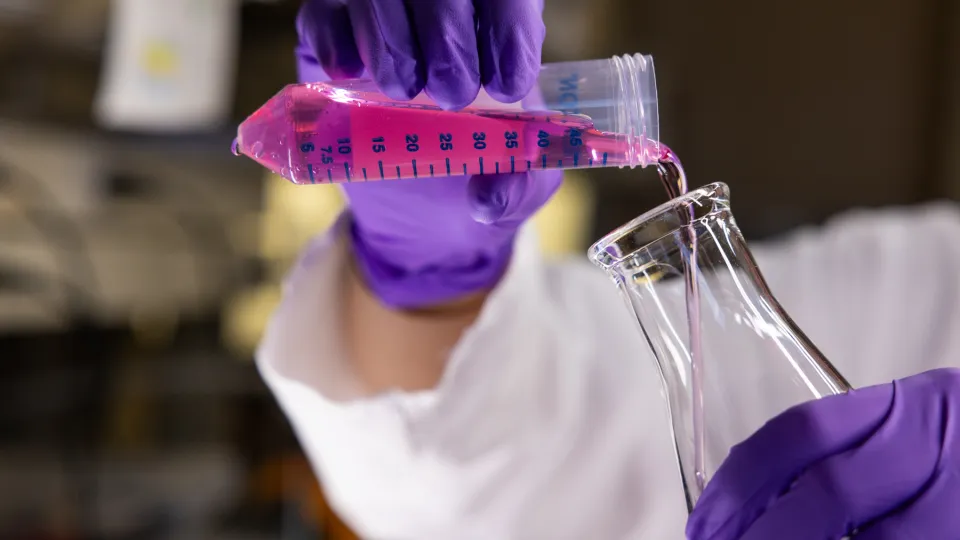News Brief
Preventing Age-Related Blood Disorders
August 14, 2024

The blood cells we need are produced by hematopoietic (blood-forming) stem cells (HSCs). The HSCs renew themselves over the human lifespan; and when they differentiate, HSCs give rise to the body’s many types of blood cells. As individuals age, however, the regenerative capacity of HSCs decreases, increasing the risk for age-associated blood disorders and a decline in immune function. HSCs reside in specialized niches within the bone marrow.
In previous research, Maria Maryanovich, Ph.D., and colleagues have shown that aging inflames nerves of the sympathetic nervous system (SNS) that regulate portions of the HSC bone-marrow niches, leading to aging of the blood system. The National Heart, Lung, and Blood Institute has awarded Dr. Marianovich a five-year, $2.8 million grant to discover the molecular mechanisms by which age-related dysfunction of autonomic nerves in the bone marrow drives the aging of HSCs and the blood system. The research could lead to strategies for rejuvenating HSCs that could help treat age-associated blood diseases or even prevent them from occurring.
Dr. Maryanovich is an assistant professor of cell biology at Einstein and a member of the National Cancer Institute-designated Montefiore Einstein Comprehensive Cancer Center. (1R01HL174801-01)



